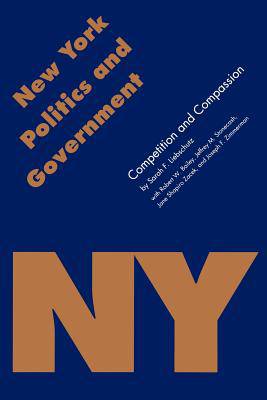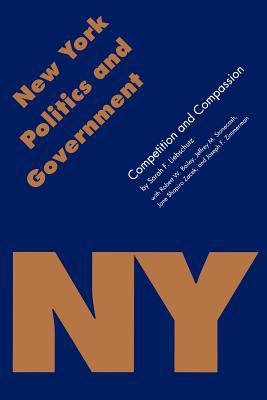
- Retrait gratuit dans votre magasin Club
- 7.000.000 titres dans notre catalogue
- Payer en toute sécurité
- Toujours un magasin près de chez vous
- Retrait gratuit dans votre magasin Club
- 7.000.000 titres dans notre catalogue
- Payer en toute sécurité
- Toujours un magasin près de chez vous
Description
Two values often at odds with each other--competition and compassion--dominate New York's political culture. Since the eighteenth century New York has been known for its economic leadership and entrepreneurial opportunities. Its nickname, "the Empire State," reflects the state's continuing role as a national and international center of industry and commerce. Yet New York's political culture, as Daniel J. Elazar has noted, is paradoxically both individualistic and moralistic. Compassion is extended not only toward those unable to compete in the marketplace but also toward the numerous interest groups and institutions--labor, business, nonprofit agencies--that depend on the state's largesse for their own well-being. This distinctive political blend can produce inconsistent yet complementary public policies, such as providing tax incentives for economic development alongside liberal Medicaid benefits.
In this excellent overview of New York politics, five distinguished scholars explore the state's paradoxical political culture, examining its local, regional, and national components through the years.
Spécifications
Parties prenantes
- Auteur(s) :
- Editeur:
Contenu
- Nombre de pages :
- 235
- Langue:
- Anglais
- Collection :
Caractéristiques
- EAN:
- 9780803279711
- Date de parution :
- 01-02-98
- Format:
- Livre broché
- Format numérique:
- Trade paperback (VS)
- Dimensions :
- 153 mm x 227 mm
- Poids :
- 394 g







